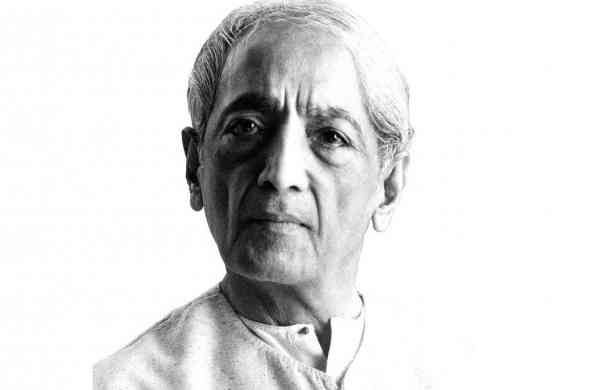During the pandemic I’ve been participating in three online dialogue groups, two based in the US and one in the UK, all loosely based on the Dialogue Proposal of the late physicist/philosopher David Bohm. The intent is to hold a space, think together, and listen for insight, but personal perspective carries the day on both sides of the pond.
The two groups in the USA emanate from New Jersey and Vermont, while the one in the United Kingdom is out of Scotland. The New Jersey group has a “facilitator” and master manipulator sitting at the controls. It started out a few years ago as a book club, and has descended into metaphysical interpretation and ideology.
The convener-controller does not brook dissent, labeling questioning of his unexamined premises and conclusions “disruptive fragmentation.” I endured one session, asked to be removed from the near daily notices and excerpts from Krishnamurti’s teachings, and returned briefly on the request of four long-time participants before leaving for good.

The New Jersey moderator does not distinguish between past emotion and present feeling, declaring, Spock-like, that feeling is nothing but sentimentality. I became persona non grata when I replied: If we don’t feel, we’re dead.
Imagine a very smart AI machine in the near future, which has been fed all the talks and writings of one of the world’s greatest religious philosophers. Utter any word or phrase, and this AI program will immediately give a relevant quote, or worse, a cunning interpretation. That’s how the New Jersey dialogue guru strikes the attentive listener, though of course he has many followers and sycophants.
The Vermont group is boilerplate New Age, with much talk about love and consciousness-raising set in the context of TED talks or their equivalent level of superficial inspiration. The hosts put on a good show, but are just blowing bubbles. Unlike heavy Bernie bubbles however, which fall to the ground and burst in silent splats, their bubbles float ephemerally into the sky.
The Edinburgh online group, perhaps because it’s Scottish-based and traced, has some real heft. Two women organized and convene the monthly, 3-hour dialogue, and both are philosophers. It’s still rare to find one female philosopher in this or any land.
Unlike the New Jersey group, newcomers are welcome, there is no established group dynamic, and the conveners eschew the role of facilitator and moderator. Even more remarkably, people actually listen to each other. There are frequent pauses, with relaxed silences, allowing reflection by all and permitting less verbal participants the chance to speak.
There is one disturbing similarity, if not sameness, between the US and UK dialogues. It’s the unexamined assumption that we are separate individuals, each with valid ‘personal perspectives.’ Or, as one of the Edinburgh philosophers put it in a letter to me, “Our experience of reality is perspectival – i.e. it is through our perspective that the world is disclosed to us.”
“As a perspective, it is always limited and imperfect…[therefore] learning other perspectives is a way to view reality from multiple angles and get a better picture,” she added, with the confidence of a consensus view reality and unassailable logic.
One hears this view so often that it has become hackneyed. Having dialogued with David Bohm, it was not his worldview, nor did he advocate “learning other perspectives as a way to view reality from multiple angles to get a better picture.”

Bohm didn’t deny or try to quash personal perspective; he simply felt that the underlying assumption of the autonomous individual was false. Giving primacy to personal perspective denies dialogue as he proposed it. Listening to each other’s perspectives has its place, but to question and think together, ‘my perspective’ has to be held in abeyance.
The parts don’t make a whole. Diversity flows from wholeness, not from particularity. No mater how many perspectives one learns, it will not give one an insight into what is, and the truth and actuality beyond what is.
Can people question and think together? Can we see the same thing at the same time at the same level during dialogue? We have the capacity for direct perception and insight into what is, both alone and together.
Meditative dialogue is the social equivalent of solitary meditation, which is the art of quieting and emptying the mind in undirected attention to the movement of thought and emotion, aided by the mirror of nature.
Solitary meditation is ongoingly foundational, essential to radically change oneself, while questioning and igniting insight together is essential to change the disastrous course of humankind. The individual is microcosm and humanity is macrocosm.
Martin LeFevre
No comments:
Post a Comment